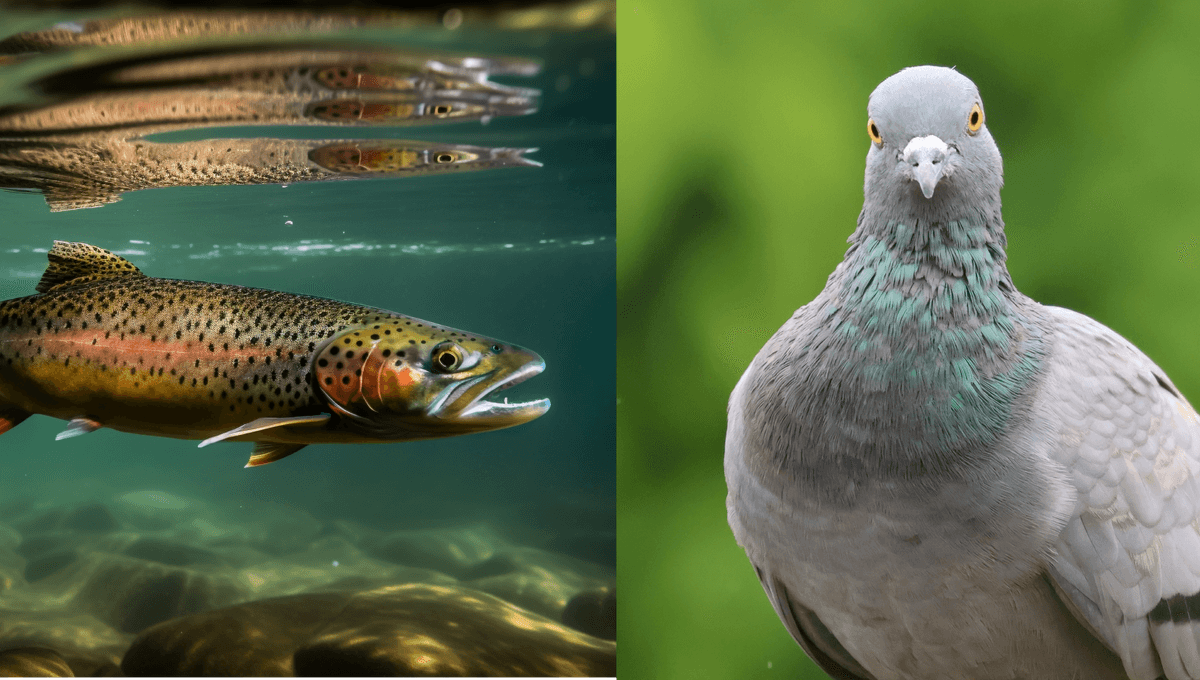
The 2024 Ig Nobel Prizes have been announced, and once again prove that science can be funny, which only sometimes gets in the way of it being good.
Highlights this year include research comparing the movements of live and dead trout, and sober and drunk worms. Apparently, being drunk may harm a worm’s capacity for movement more than being dead interferes with trout’s.
The Ig Nobel awards each year honor (or dishonor) research that “first makes you laugh, and then makes you think.” One such discovery won this year’s Ig Nobel for Medicine with the revelation that side-effects may make medicine more effective. How did the authors discover this important information? They gave people placebos (ie fake medications with no ingredients targeted at their condition). The capacity of the human mind to heal ourselves, at least partially, when given a treatment we think will work is remarkable, but requires some sort of belief.
It seems we have more faith in medications that produce side effects; at least that is the most likely explanation for the fact placebos with noticeable side effects produce better results. We have no idea how the researchers got this one past an ethics committee, nor what they told people enrolling in the project. Nevertheless, we do admit that this could prove useful, although threading the needle of how notable they must be to convince people of their effectiveness, without doing serious harm, could be a challenge.
Other winners showed that coin flips are very slightly biassed towards the side facing up before the tossing and that some mammals can breathe through their anuses, although unlike turtles, none have made it a survival mechanism.
Dr Saul Newman won the Demography Prize for a genuinely worthy debunking proving that “Blue zones” – supposed to host exceptional numbers of residents aged over 100 – tended to be places without reliable birth certificates. Those claiming to have reached a century are instead mostly committing pension fraud, but have fooled enough outsiders to spark fads for adopting their diets or lifestyles, with potentially dangerous consequences.
The awards are an outgrowth of the Annals of Improbable Research. Perhaps the most improbable claim this year, winning the Anatomy Prize, is that hair may curl differently depending on one’s hemisphere, despite the weakness of the Coriolis force at such scales.
Dead Vs Drunk
The Physics Prize went to Jimmy Liao who compared the swimming capacity of live and dead trout when pulled behind a moving stick. To no one’s surprise, being alive is an asset in this department. That’s just as well else we might see zombies entering the pool at Los Angeles, making the Paris chromosome controversy look like a trout in a teacup. Nevertheless, dead trout still perform surprisingly well. In Liao’s words: “A dead trout […] also flaps its tail to the beat of the current […] a dead fish does live fish things, using its body like a sailboat to tack upwind […] the water swims the fish!”
There’s unusual symmetry with the Chemistry Prize whose Dutch-French winners used chromatography to separate Tubifex tubifex worms swimming through a maze based on their alcohol intake. Somehow, this is supposed to serve as a model for polymer separation, but it did prove the drunk worms were left for dead by their sober counterparts.
The theme of life versus non-life was extended further with the Botany Prize, recognizing the discovery that certain live plants placed next to plastic counterparts mimic the leaf shape of the plastic ones. Recipient Felipe Yamashita acknowledged he has no idea about the mechanism, although it implies these plants can see, and he hopes someone will fund further research.
Posthumous honors
Unlike the Nobel Prizes, whose past winners hand over the Ig Nobel awards, death does not prevent you from becoming an Ig Nobel recipient. This year, two awards were collected by family members of long-departed awardees. In these cases, however, the work harkened back to the Ig Nobel’s original mission, to highlight research that “cannot, or should not, be replicated”.
BF Skinner is a giant, if controversial, figure in psychology, famous for his studies of animal behavior to attempt to prove that free will is an illusion. However, his daughter thanked the Ig Nobel awarders for recognizing what she ironically described as his “most important contribution”, attempting to use pigeon trios to guide missiles to hit ships before automatic guidance systems existed.
Project Pigeon, as Skinner called this work, won the 2024 Ig Nobel Peace Prize. To be fair, had it met its goal of destroying Germany’s largest battleships, World War II might have ended earlier. Many would judge the human lives that could have been saved to be worth the price in pigeons, although Tesla might have disagreed.
Skinner reportedly claimed the project could have worked, but “our problem was no one would take us seriously.” Arguably the award means no one still does.
More inexplicable was a project that attempted to find out if scaring cows using loud noises produced by bursting paper bags caused them to produce more milk from one side of their udders than the other. The weirdness was maximized by initially placing a cat on top of the cow, although this was later abandoned as “unnecessary”. The work won the Biology Ig Nobel. The results remain unclear, but like the other winning experiments, a replication was performed during the awards ceremony. Arguably, its performance by Nobel Prize winners represents the highlight of the night (at 1hr 44).
Note for those wishing to watch the whole thing, the ceremony does not really get started until 33 minutes.
Those seeking deeper knowledge of the winners may choose to attend Saturday’s Ig Nobel Face-to-Face, if in Cambridge, Massachusetts, or watch a video promised in a few weeks’ time.
Source Link: Dead Trout Swimming And Pigeon Missiles – 2024 Ig Nobel Prizes Are Outrageous As Ever